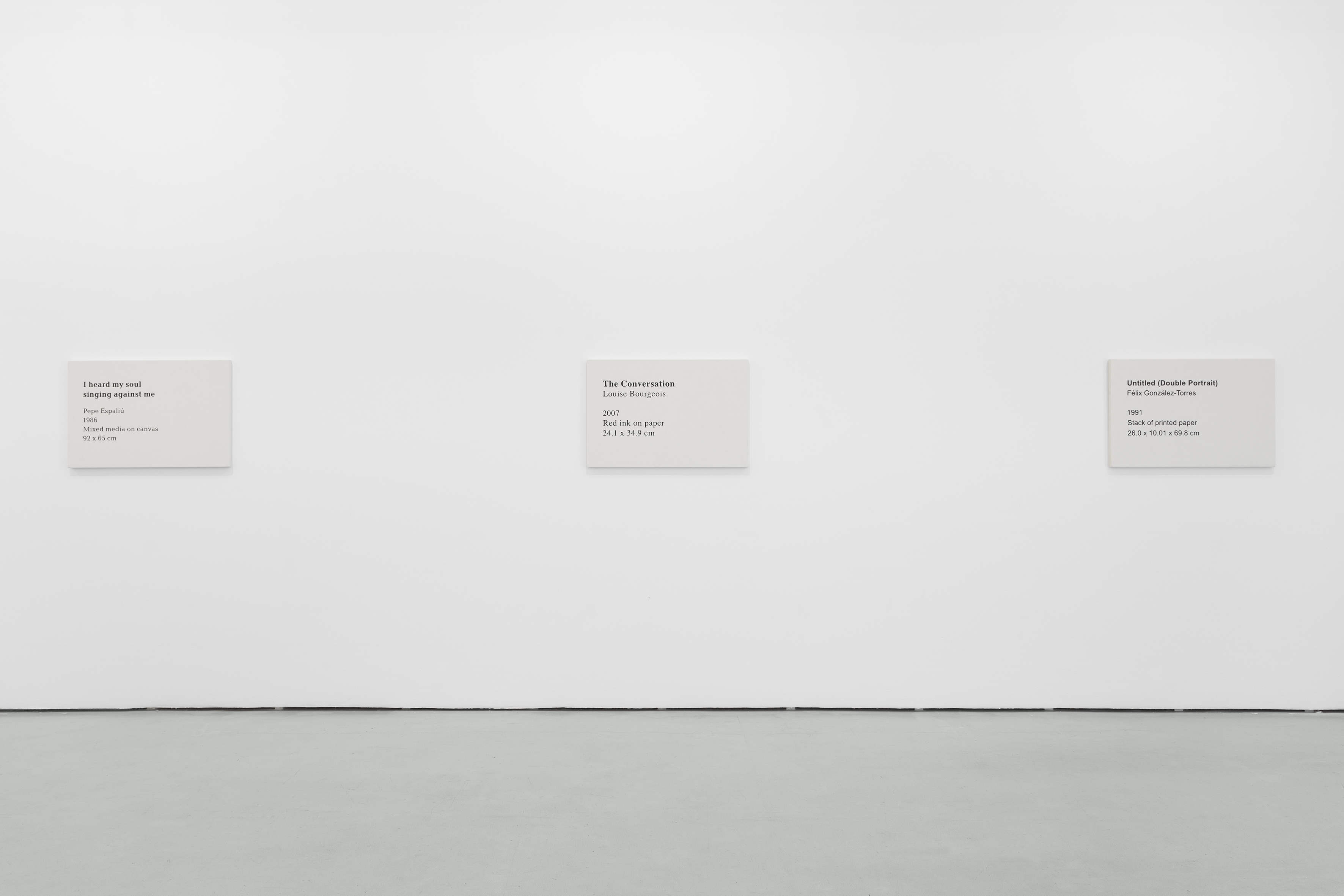









We Are Not Ourselves is Elmgreen & Dragset’s first solo exhibition at Cristina Guerra Contemporary Art. The show features several new works by the artists, including six new marble reliefs in their Self-Portraits series. This ongoing series appropriates museum wall labels of works by other artists who have inspired Elmgreen & Dragset over the years.
How can one construct an identity in a world that is becoming more fractured, fluid, and less coherent; where traditional notions of class belonging, sexual identity, or the role of the artist seem to be constantly changing? As an artist duo, how is it possible to frame an individual narrative beyond the conventional idea of the singular auteur? Which words do we use? Which influences do we cite? In a society confronted with an endless stream of information, what constitutes the identity of an individual today – or, more complex still – a duo?
In We Are Not Ourselves, Elmgreen & Dragset propose a different form of self-portraiture that functions more like poetry: where cerebral and emotional experiences collide and various inspirational sources are cited.
The artists’ Self-Portraits series elevates the humble museum wall label to an artwork in its own right while granting an intimate and personal look at the duo’s collaboration. Here, the cardboard label is substituted by classical fine art materials such as engraved marble and paint on canvas. Pepe Espaliú, Vilhelm Hammershøi, Agnes Martin, General Idea, Louise Bourgeois, and Lygia Clark all feature as external influences by way of their works’ titles, which serve to piece together Elmgreen & Dragset’s conception of the self. These works represent their shared history together as an artist duo and reveal the art historical references that have been part of forming their artistic universe. Fragments of a shared persona are presented throughout the exhibition. In defiance of the reductive selfie culture, Elmgreen & Dragset’s Self-Portraits explore how our identities today are deeply dependent on multiple influences.
The double emerges variously in the exhibition: two crumpled pillows (Untitled) rendered in bronze with a matte white finish sit side-by-side to memorialize an intimate, shared moment whilst paying tribute to the artist Felix Gonzalez-Torres's billboard depicting an empty bed bearing visible traces of two bodies. In another work, two candles (47 mins / 1 hour 52 mins) appear as if melted down at different rates, conveying two ephemeral life spans, though carved in marble. Similarly, in The Slowness of Us, a slug is cast in bronze and halted on its journey ascending a plank leaning against the wall.
The two faded rectangles of Portraits of the Artist imply the absence of a pair of portraits no longer hanging on the wall. The faint traces suggest the idea that eventually, all of our portraits will somehow be taken down: history will be re-written or our data will crash, Instagram or Facebook will no longer be relevant, and the images that served as profiles of our identities might vanish, existing only as distant memories. We Are Not Ourselves addresses this ever-changing contemporary context and suggests other ways of conceiving one’s identity.